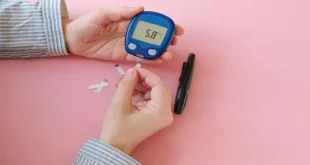
Potassium is an essential nutrient for heart health and should be included in the diet. It not only helps reduce the risk of high BP but also reduces the risk of cardiovascular diseases (CVD) such as heart attack and stroke. As an electrolyte, potassium regulates the activity of the nervous system, muscles, and heart. It aids in the movement of nutrients and waste within your body's cells.
Potassium deficiency may increase the risk of heart disease
Potassium is an important nutrient that helps strengthen the heart muscles. Lack of potassium in the body is called hypokalemia. In this, the functioning of the heart does not work properly. Its deficiency can increase the risk of heart problems like increased heart rate, heart attack or sudden cardiac arrest in severe cases.
Iron deficiency significantly increases the risk of high blood pressure, stroke and heart diseases. It can also help prevent calcification caused by a lack of calcium in the smooth muscle cells within the heart arteries.
If there is a lack of potassium in the body or you suffer from hypokalemia, cardiac problems and symptoms may appear – such as.
heart beat fast
Difficulty breathing
Heart failure
Or, in severe cases, a sudden, rapid heartbeat.
Include these things in your diet
Include potassium-rich foods in your diet
Eat potassium-rich fruits like bananas, potatoes, avocados, and green leafy vegetables.
Dehydration can cause a deficiency of potassium in the body. So drink as much water as possible.
 look news india
look news india


